|
Cary's Reports (1650)
In this compilation Master-in-Chancery George Carew (c.1556–1612) reports case
decisions from 1537 to 1604 "out of the labours" of fellow master William Lambert.
Many of the entries contain little to no description beyond that recorded in the
registrar's books. The reports are known as Cary's Reports due to the misspelling of
the author's name on the title page.
|
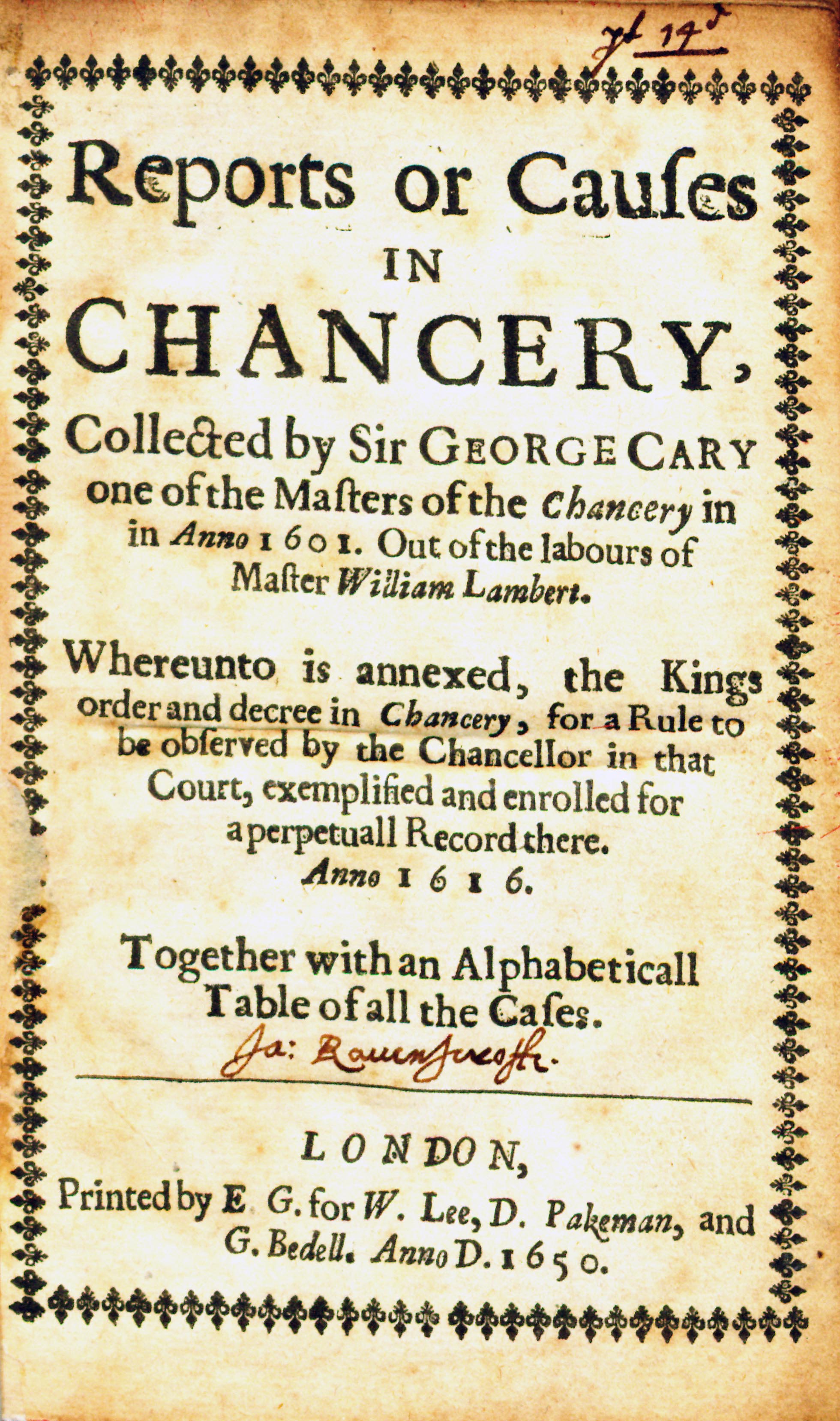
|
Carew, George. Reports or Causes in Chancery. 1st ed. London: Printed by E.G. for W.
Lee, D. Pakeman, and G. Bedell, 1650.
|
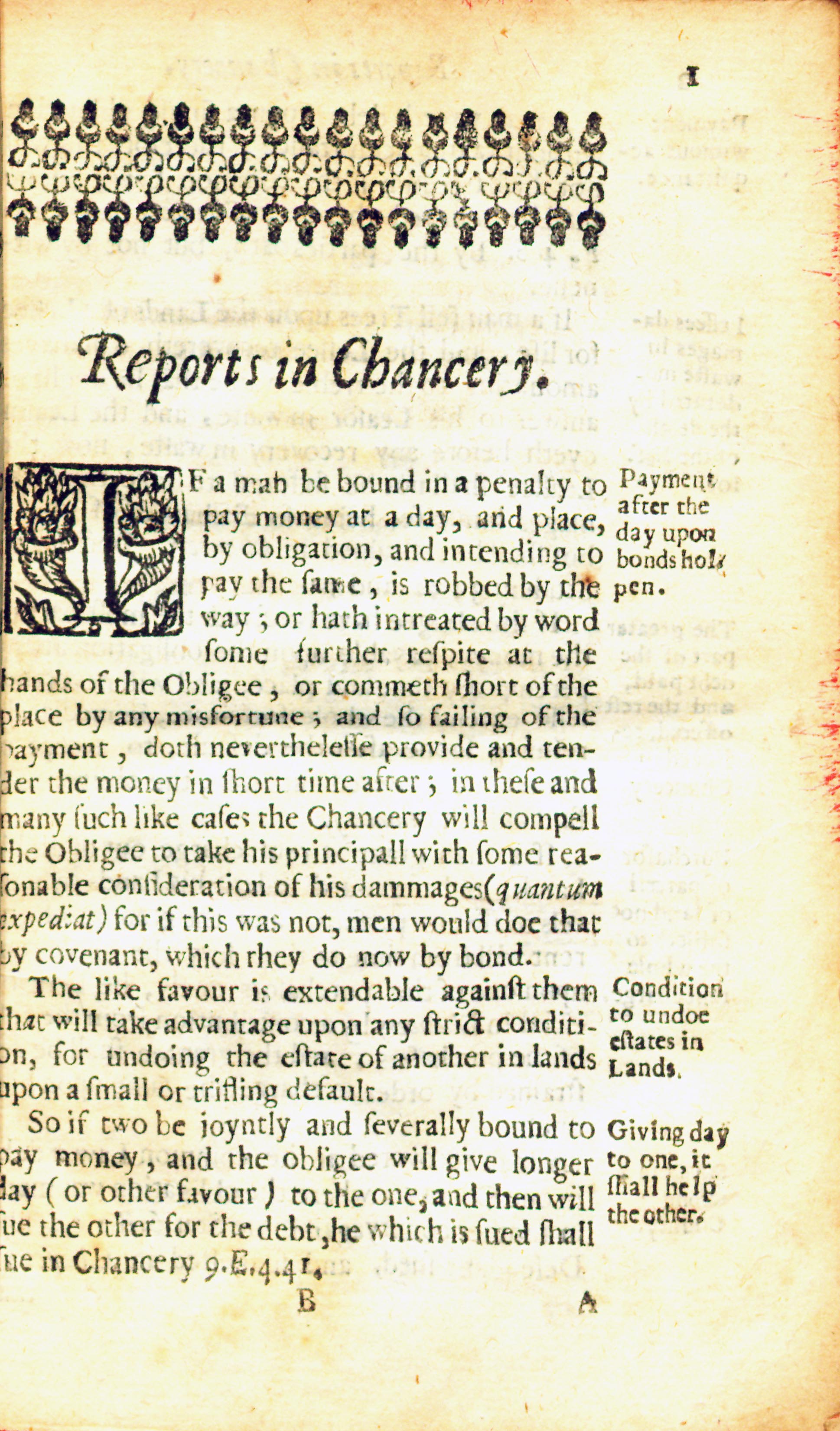
|
First page of George Carew's Reports or Causes in Chancery, 1650.
|
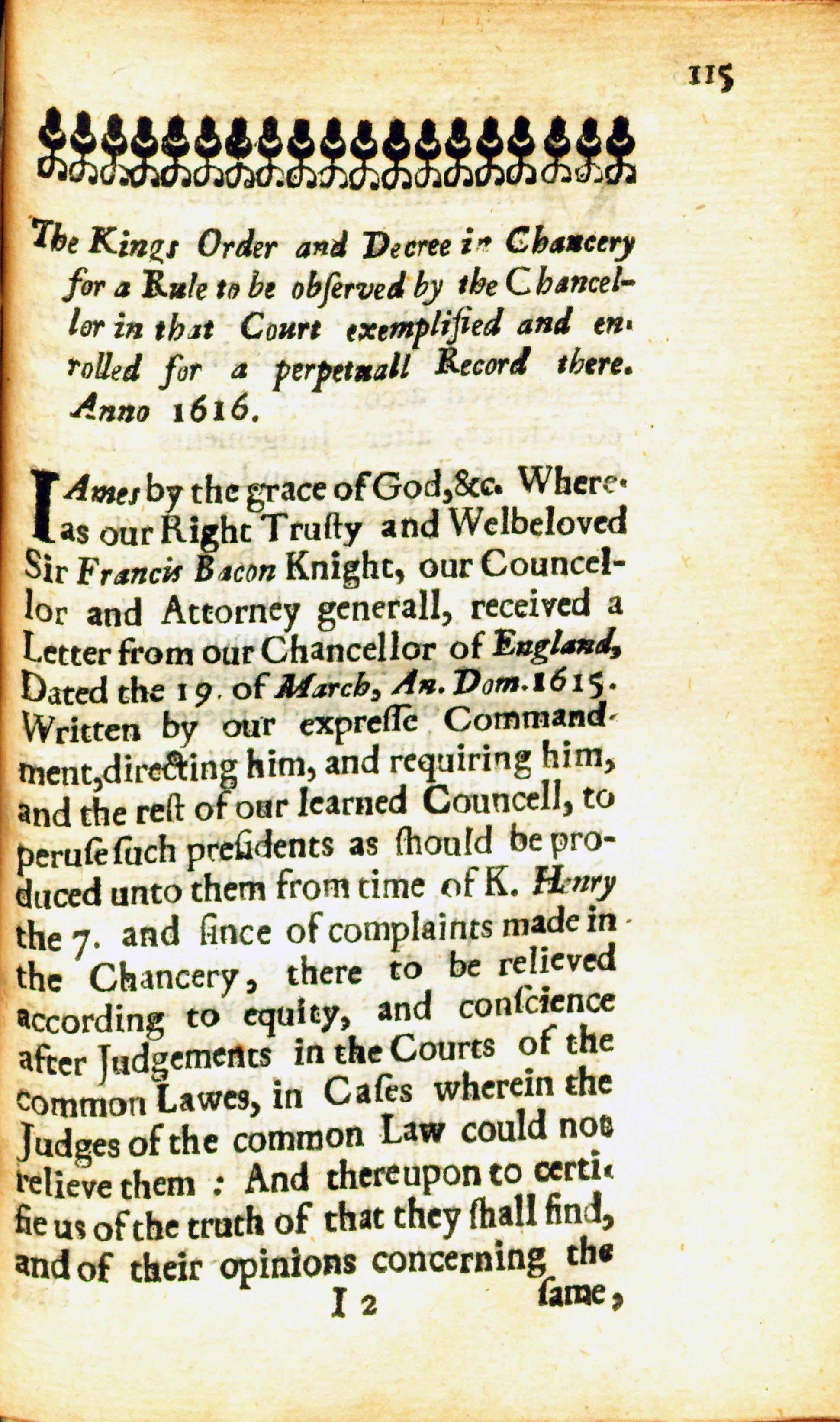
|
Page 115 of George Carew's Reports or Causes in Chancery, 1650.
|
|
|
Plowden's Reports (1650)
When Edmond Plowden (c.1518–1585) first published his reports in 1571, they represented
a departure from the method of case reporting seen in the Year Books. Considered
among the best reports from any time period, Plowden's collection initiated the
practice of including commentary and analysis. Their usefulness and singular
reputation led to abridgment, first in French in 1597, then in English in 1650.
This copy includes the armorial bookplate of the Earls of Macclesfield on the front
pastedown.
|
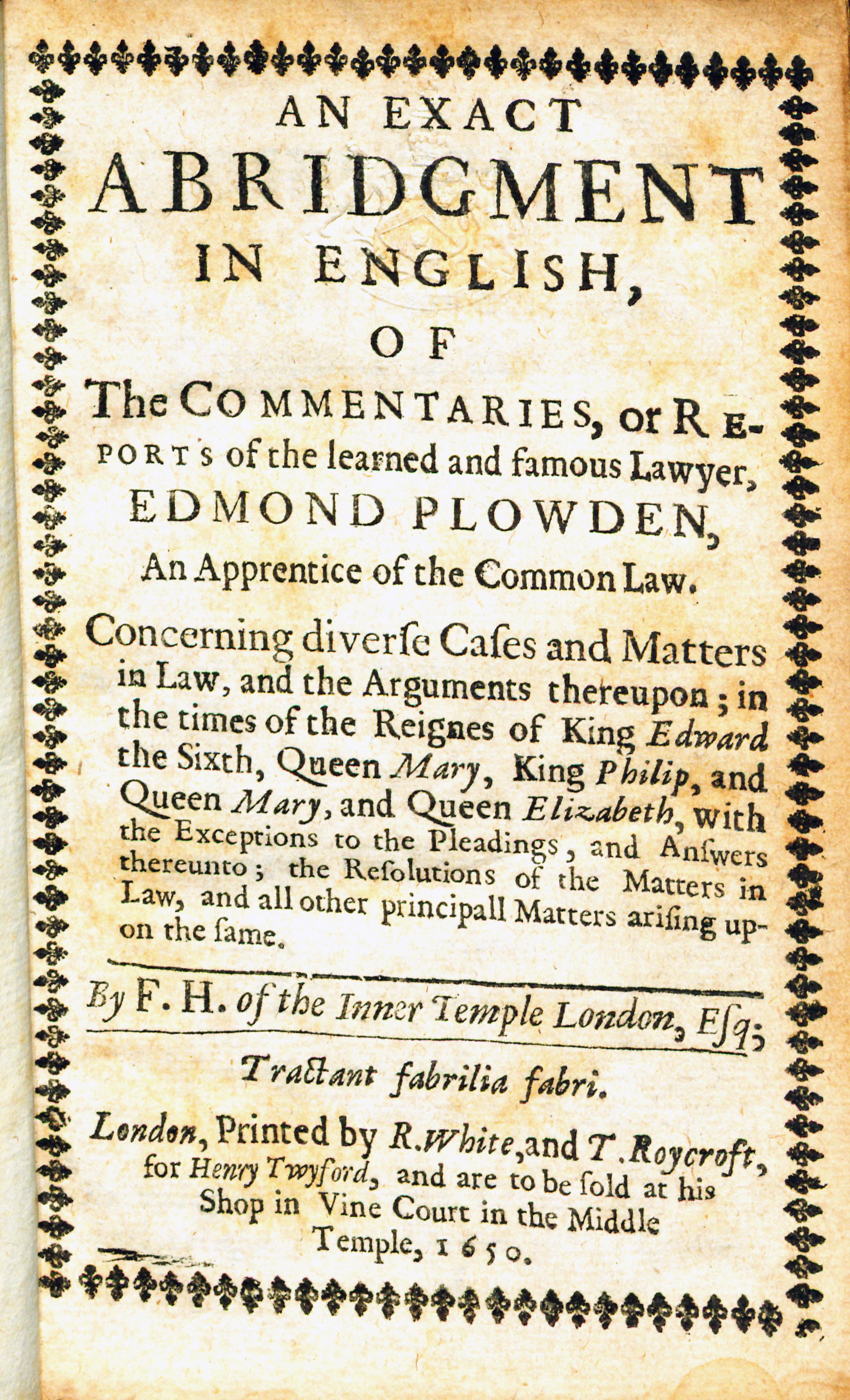
|
Plowden, Edmond. An Exact Abridgment in English of the Commentaries or Reports of the
Learned and Famous Lawyer Edmond Plowden, An Apprentice of the Common Law.
Translated and edited by Fabian Hicks. 1st ed. London: Printed by R. White, and T.
Roycroft, for Henry Twyford, 1650.
|
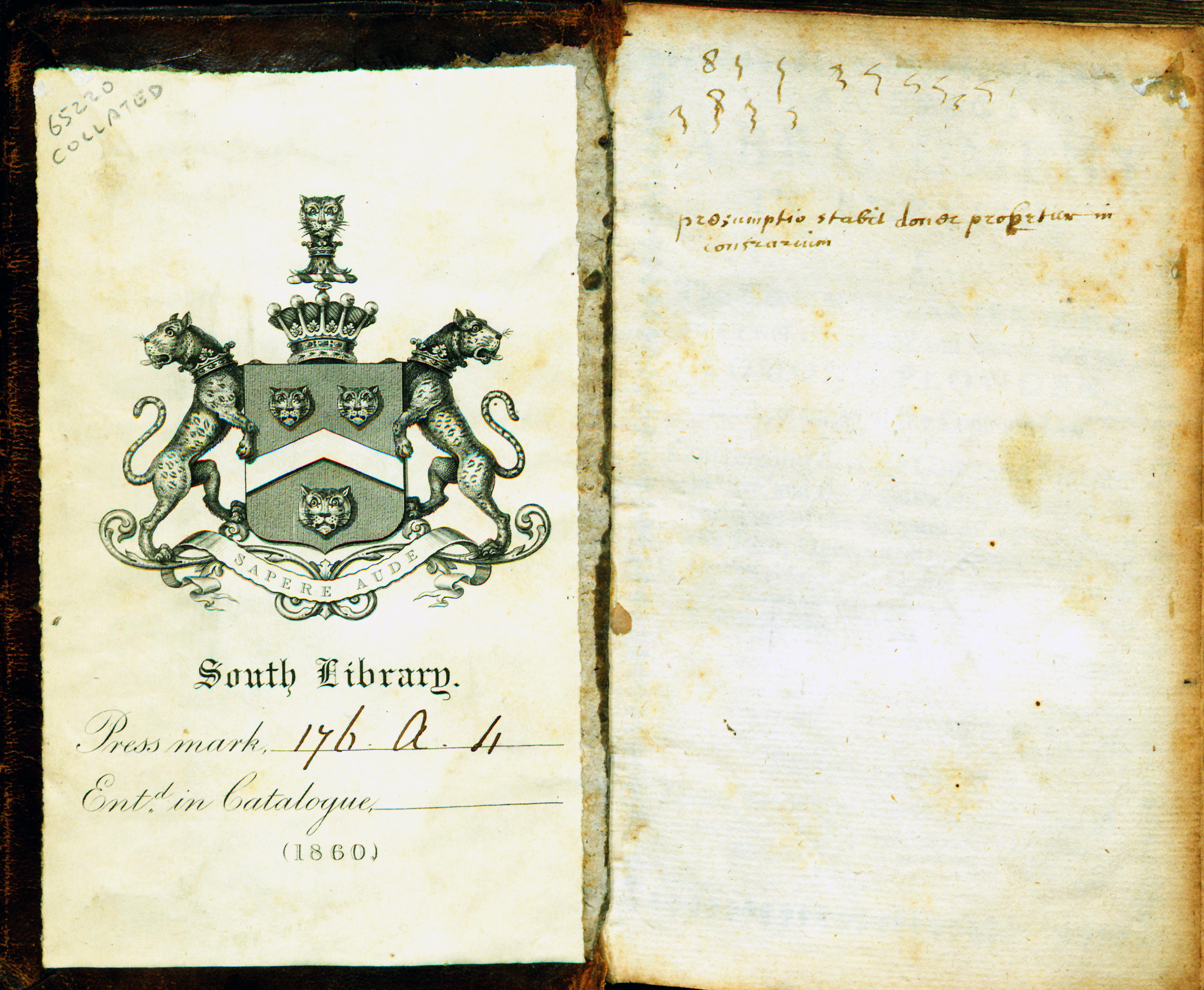
|
Front pastedown and free front endpaper, Edmond Plowden, An Exact Abridgment in English of the Commentaries or Reports, 1650.
|

|
Bookplate, front pastedown, Edmond Plowden, An Exact Abridgment in English of the Commentaries or Report, 1650.
|
|
|
A Kalendar (1608)
Although Fardinando Pulton (1536–1618) was a staunch Roman Catholic, his steadfast loyalty to Elizabeth I and James I and support from prominent royal officials enabled him to become an important legal author and compiler of statutes for publication. The Kalender is one of his five major works. It is a compilation of all the statutes that were in print as of 1608.
|
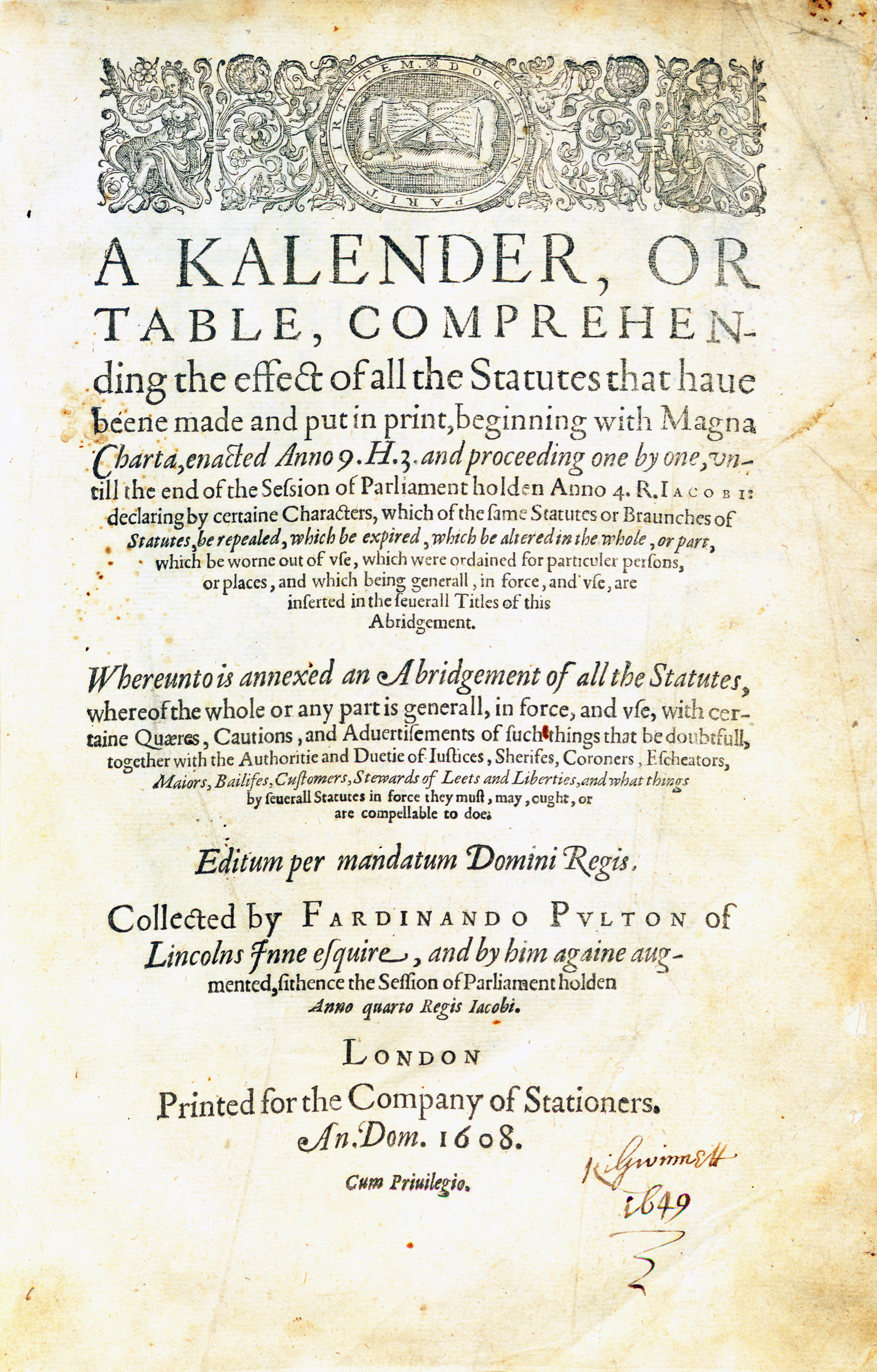
|
Pulton, Fardinando. A Kalender, or Table, Comprehending the Effect of all the Statutes that have Beene Made and Put into Print, Beginning with Magna Charta... London: Printed for the Company of Stationers, 1608.
|
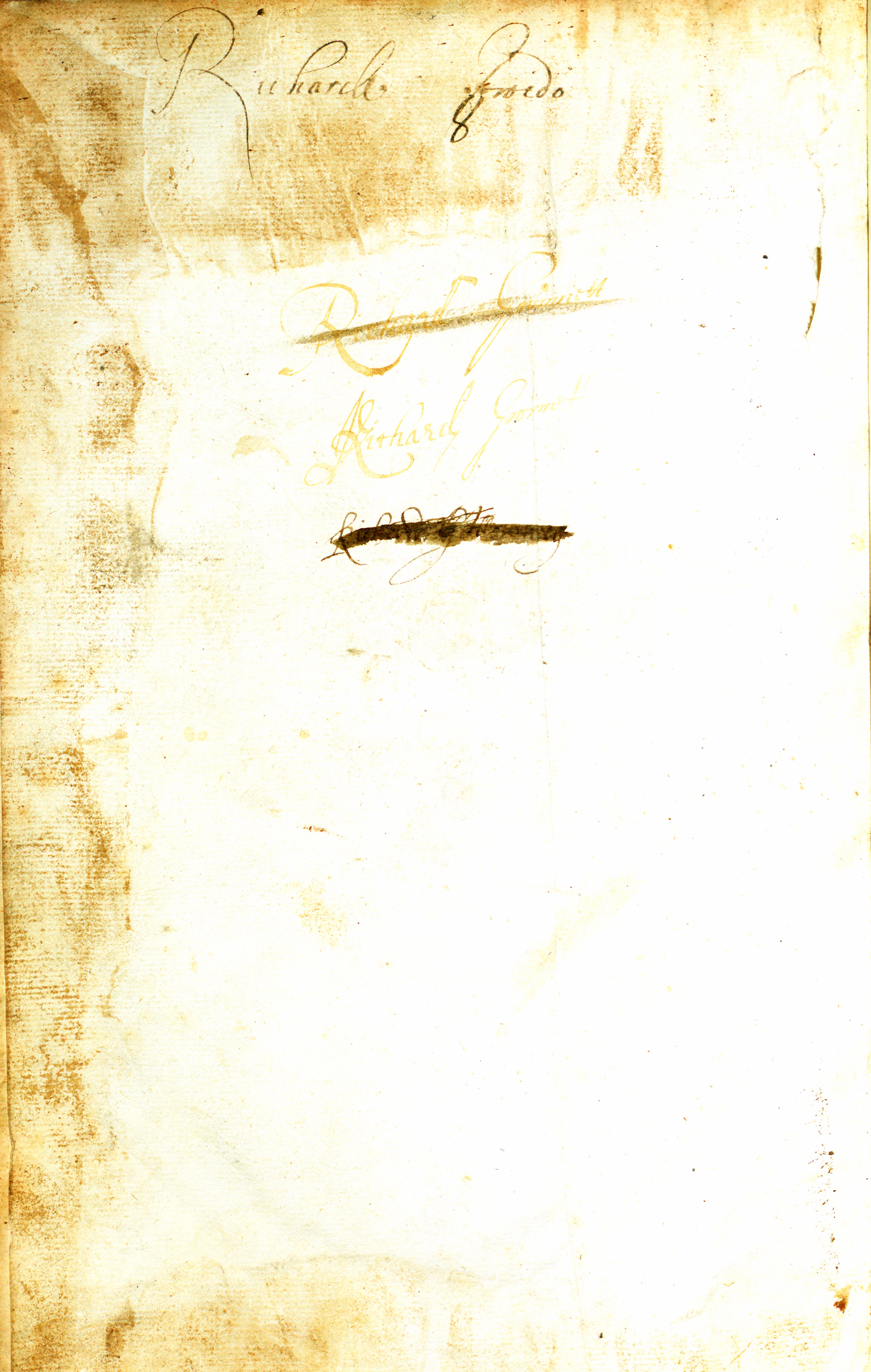
|
Recto, free front endpaper, Fardinando Pulton, A Kalender, 1608, with signatures of previous owners.
|
|
|
The Whole Volume of Statutes at Large (1587)
Who compiled the volume is uncertain. It may have been Christopher Barker (1528/29–1599). Although Barker was an active member of the Stationers Company of London and a printer to Elizabeth I, he did not print The Whole Volume of Statutes at Large. It was produced by independent printers who did contract work.
|
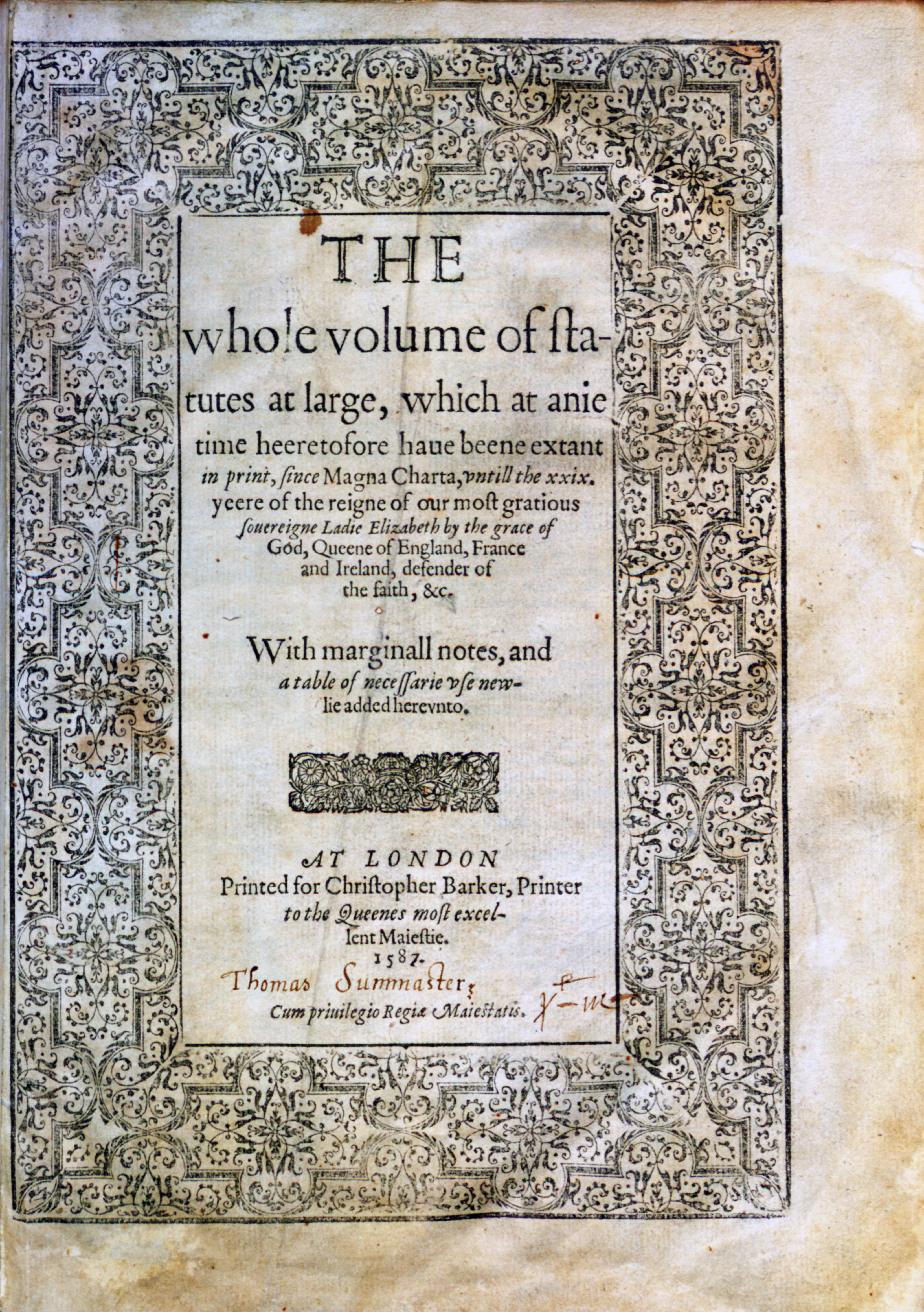
|
The Whole Volume of Statutes at Large, Which at Anie Time Heeretofore Have Beene Extant in Print, Since Magna Charta until the XXIX Yeere of the Reigne of Our Most Gratious Sovereigne Ladie Elizabeth by the Grace of God, Queene of England, France and Ireland, Defender of the Faith, etc. London: Printed for Christopher Barker, 1587.
|